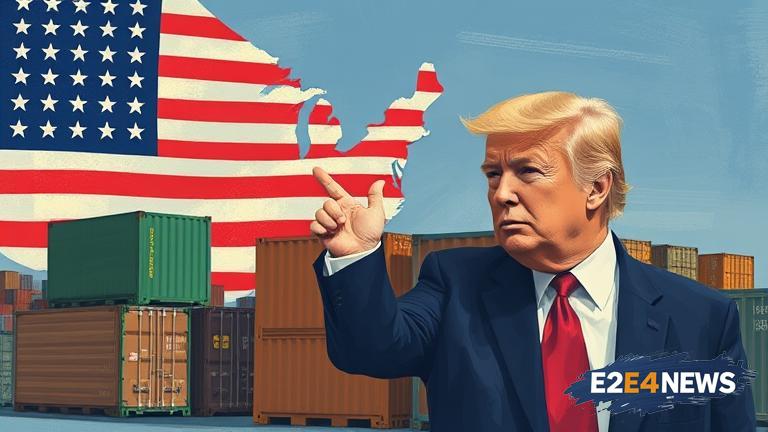The ongoing trade tensions between the United States and China have been a major concern for the global economy. The US, under President Trump’s administration, has imposed tariffs on Chinese goods, citing unfair trade practices and intellectual property theft. China has retaliated with its own set of tariffs, leading to a trade war that has affected not only the two countries but also other nations around the world. The situation has sparked fears of a global economic downturn, with many experts warning of the potential consequences of a prolonged trade war. In an effort to mitigate the situation, some have suggested the use of moral suasion, a diplomatic approach that involves persuading countries to adopt certain policies or behaviors through moral arguments rather than coercion. However, the effectiveness of moral suasion in resolving the trade dispute remains uncertain. The US has a long history of using tariffs as a tool to protect its domestic industries, and Trump’s administration has been vocal about its intention to reduce the country’s trade deficit. China, on the other hand, has been accused of unfair trade practices, including stealing intellectual property and forcing American companies to transfer technology to Chinese firms. The trade war has already had significant consequences, with many US companies reporting losses due to the tariffs. The situation has also led to a decline in global trade, with the World Trade Organization (WTO) warning of a potential slowdown in trade growth. Despite the challenges, some experts believe that moral suasion could still play a role in resolving the trade dispute. They argue that by appealing to China’s sense of responsibility and its desire to be seen as a global leader, the US may be able to persuade China to adopt more fair trade practices. However, others are skeptical, pointing out that China is unlikely to back down in the face of US pressure. The situation is further complicated by the fact that the trade war is not just about economics, but also about geopolitics and national security. The US and China have fundamentally different views on issues such as trade, security, and human rights, making it difficult to find common ground. As the trade tensions continue to escalate, the global community is watching with bated breath, hoping that a resolution can be found before it’s too late. The use of moral suasion is just one of the many approaches being considered, and it remains to be seen whether it will be effective in mitigating the situation. In the meantime, the world waits with anticipation, wondering what the future holds for global trade and the US-China relationship.
